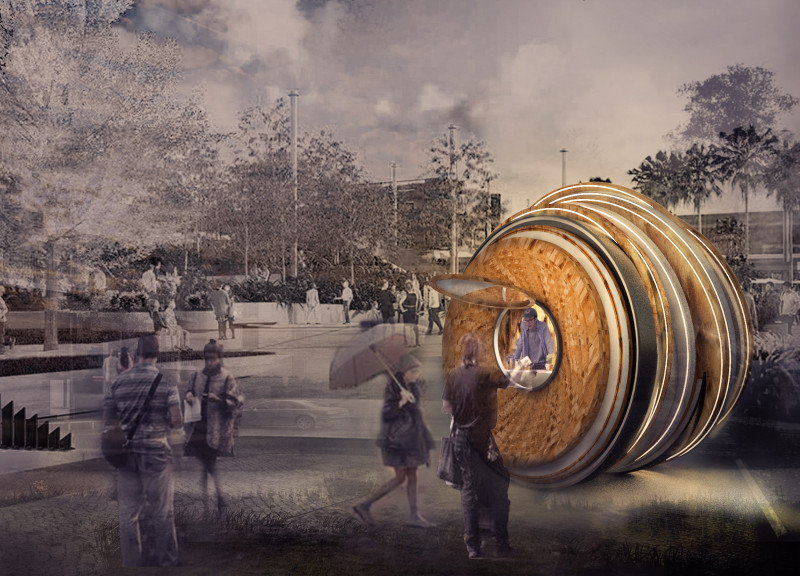5 key facts about this project
The structure is composed of a series of overlapping circular forms that create a dynamic aesthetic, acting as both an architectural landmark and a functional space. The façade utilizes locally sourced wood, providing warmth and a connection to traditional craftsmanship. In contrast, metal framing supports the overall structure, ensuring durability while allowing for innovative design calculations. Additionally, solar panels are incorporated to promote energy efficiency, supporting lighting needs throughout the operational hours of the kiosk.
Unique Integration of Cultural Elements
This project distinguishes itself from typical kiosks through its deep cultural integration and modern design approaches. The circular forms symbolize the motion associated with chariot wheels, which resonates with local traditions and celebrations. By embracing the concept of the "Fun Theory," the design encourages user participation and engagement in a playful manner. The inclusion of community-friendly features, such as an inviting entrance and spacious interior layout, fosters a sense of belonging and interaction among users.
Innovative Use of Sustainable Materials
Sustainability guides material selection and construction practices in this project. The use of wood aligns with environmental considerations while enhancing the aesthetic quality. Metal framing not only supports the structure but also contributes to its sustainable profile through recyclable properties. Glass is strategically used to provide visual connectivity between the interior and exterior, inviting passersby to engage with the space. The incorporation of solar panels underlines a commitment to reducing the project's carbon footprint while enhancing functionality.
This architectural design project exemplifies a successful melding of cultural narratives, modern functionality, and sustainable practices, creating a hive of activity and engagement in an urban setting. To explore the architectural plans, sections, and designs more thoroughly, interested readers are encouraged to delve deeper into the project presentation for detailed insights.


























